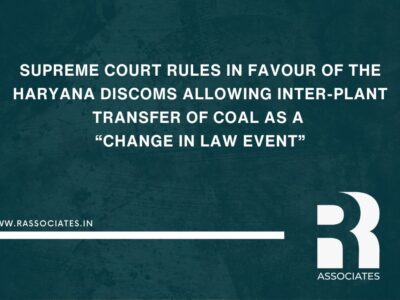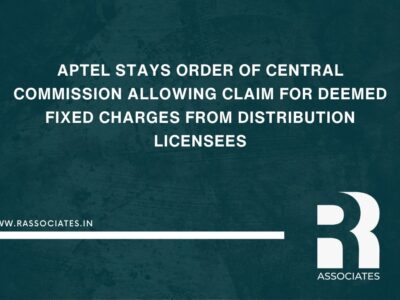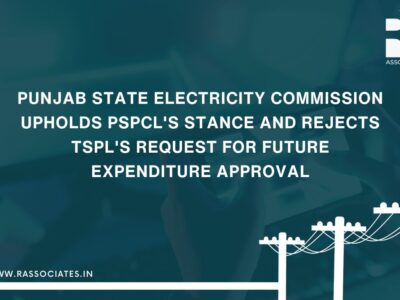
The Implications of the PPA in TSPL v. Punjab State Load Dispatch Centre
The Punjab State Electricity Regulatory Commission recently adjudicated a case, IA No. 07 of 2023 in Petition No. 63 of 2022, involving Talwandi Sabo Power Limited (TSPL) as the Petitioner/Applicant and the Punjab State Load Dispatch Centre as the Respondent. Central to the dispute was the interpretation and application of the Electricity Act, 2003, the provisions of the Power Purchase Agreement (PPA) dated 01.09.2008 to determine whether the matter pending before the Commission could be referred to Arbitration by exercising the powers of the Commission under Section 86(1)(f) of the Electricity Act, 200. The case delved deep into the nuanced intricacies of the legal framework governing the energy sector, with emphasis on bilateral arbitration under the Arbitration and Conciliation Act, 1996, the intention behind Power Purchase Agreements (PPAs), and the overarching implications for consumer tariffs.
Background of the Case
At the heart of this dispute were the issues arising out of the Power Purchase Agreement (PPA) dated 01.09.2008, a contractual framework that delineates the rights, obligations, and redressal mechanisms for parties involved in energy transactions.
TSPL primarily submitted that the petition requires adjudication by experts since the issue raised relates to tripping / blackout of units along with the capacity charges to be paid by PSPCL, which involves a detailed analysis of documents, evidence, and reports placed by TSPL and therefore the matter be referred to arbitration. TSPL relied on previous instances where such reference has been made by the Commission to arbitration.
PSPCL primarily submitted that the intention of the parties in signing the Power Purchase Agreement (PPA) is clear. Any tariff-related issues are always to be adjudicated by the Commission. This is fundamentally based on the aspect that any resolution of such a dispute will have a direct impact on consumer tariffs and consumer interest. In a bilateral arbitration under the Arbitration and Conciliation Act, 1996 the Consumer cannot be a party.
It was further submitted by PSPCL that, in the guise of proposing a speedy disposal, filing such an application at a belated stage is a dilatory tactic and an abuse of the process of law. The request or application, if any, ought to have been made by TSPL in the petition itself or at least during the admission hearing before the Commission. The above application was filed when the pleadings were almost complete.
Observations and Findings
The Commission agrees with the submissions of PSPCL held that though it is at the discretion of the State Commission to decide the dispute itself or refer the same to an arbitrator if it is overburdened and may not have the time to decide certain disputes itself, or when the dispute involves some highly technical point which even the State Commission may not have the expertise to decide, however, the present case does not qualify on any of these counts.
The Commission further held that referring the matter to arbitration at the stage when the pleadings are almost complete would actually delay the resolution of the dispute rather than speed it up as contended by the Petitioner.
In conclusion, the case underscored the significance of clear contractual terms, especially in sectors such as the energy sector with profound public interest implications. The Commission’s observations and findings serve as a testament to the balance between legal frameworks, contractual obligations and broader societal interests.





